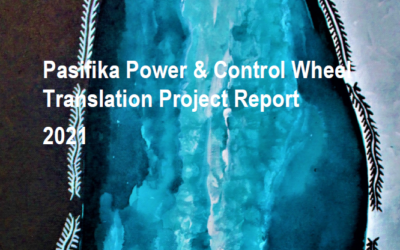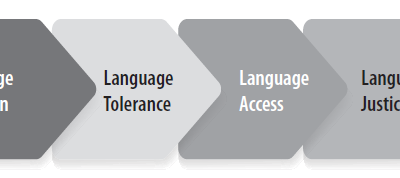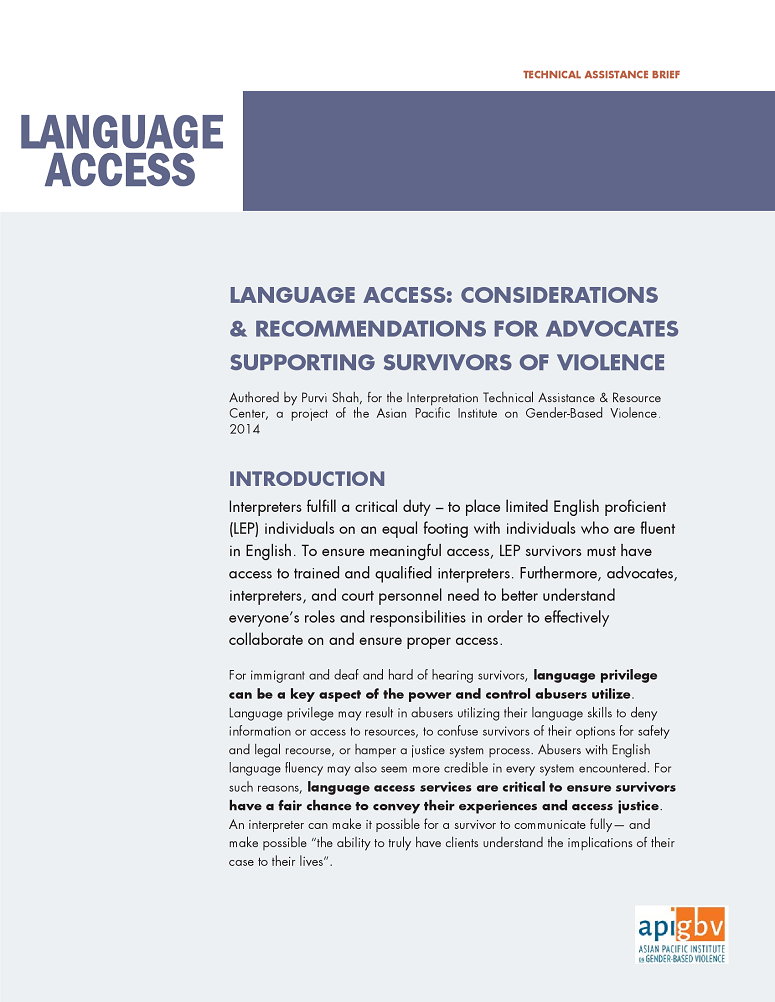Related Resources
Zoom Interpreting and Closed Captioning Guide for Service Providers, 2022
Tips and resources on Zoom interpreting and closed captioning for service providers.
Pasifika Power & Control Wheel Translation Project, 2021
This project aimed to translate and develop educational resources and tools on GBV in indigenous Pasifika languages. The project aims to empower individuals, families, community-based and system responders, allied professionals, and the community-at-large with culturally responsive resources to address and prevent GBV in Pasifika communities. Resources include project report and glossaries and tools for Samoan, Chuukese, and Native Hawaiian communities.
Language Justice Principles for Everyday Practice and During COVID-19
What is language justice, what are tips for lawyers to practice it, and why is this especially important during the COVID-19 pandemic? This article answers these commonly asked questions and more.
Language Justice in Legal Services, 2019
Published by Management Information Exchange Journal
This article positions language justice as a critical
part of effective and inclusive legal services, and introduces a framework for assessing and strengthening practices for servicing individuals who do not communicate in English as their dominant language.


